Brown has a PhD in History from the University of Edinburgh and spent his early career working as a lecturer at a further education college and a television journalist. He has been a Member of Parliament since 1983; first for Dunfermline East and since 2005 for Kirkcaldy and Cowdenbeath. As Prime Minister, he also held the offices of First Lord of the Treasury and the Minister for the Civil Service.
Brown's time as Chancellor was marked by major reform of Britain's monetary and fiscal policy architecture, transferring interest rate setting powers to the Bank of England, by a wide extension of the powers of the Treasury to cover much domestic policy and by transferring responsibility for banking supervision to the Financial Services Authority. Controversial moves included the abolition of advance corporation tax (ACT) relief in his first budget, and the removal in his final budget of the 10% "starting rate" of personal income tax which he had introduced in 1999.
Brown was educated first at Kirkcaldy West Primary School where he was selected for an experimental fast stream education programme, which took him two years early to Kirkcaldy High School for an academic hothouse education taught in separate classes. At age 16 he wrote that he loathed and resented this "ludicrous" experiment on young lives.
Gordon Brown was elected to Parliament on his second attempt as a Labour MP for Dunfermline East in 1983 general election. His first Westminster office mate was a newly elected MP from the Sedgefield constituency by the name of Tony Blair. Brown became an opposition spokesman on Trade and Industry in 1985. In 1986, he published a biography of the Independent Labour Party politician James Maxton, the subject of his PhD thesis. Brown was Shadow Chief Secretary to the Treasury from 1987 to 1989 and then Shadow Secretary of State for Trade and Industry, before becoming Shadow Chancellor in 1992. Having led the Labour Movement Yes campaign, refusing to join the cross-party Yes for Scotland campaign, during the 1979 Scottish devolution referendum, while other senior Labour politicians — including Robin Cook, Tam Dalyell and Brian Wilson – campaigned for a No vote, Brown was subsequently a key participant in the Scottish Constitutional Convention, signing the Claim of Right for Scotland in 1989.

A Funny Resignation Letter
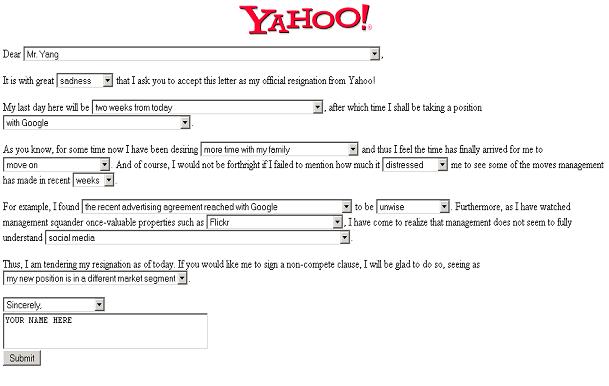
Bloger funny resignation

Yahoo Resignation Letter

Resignation Letter

Most honest resignation letter
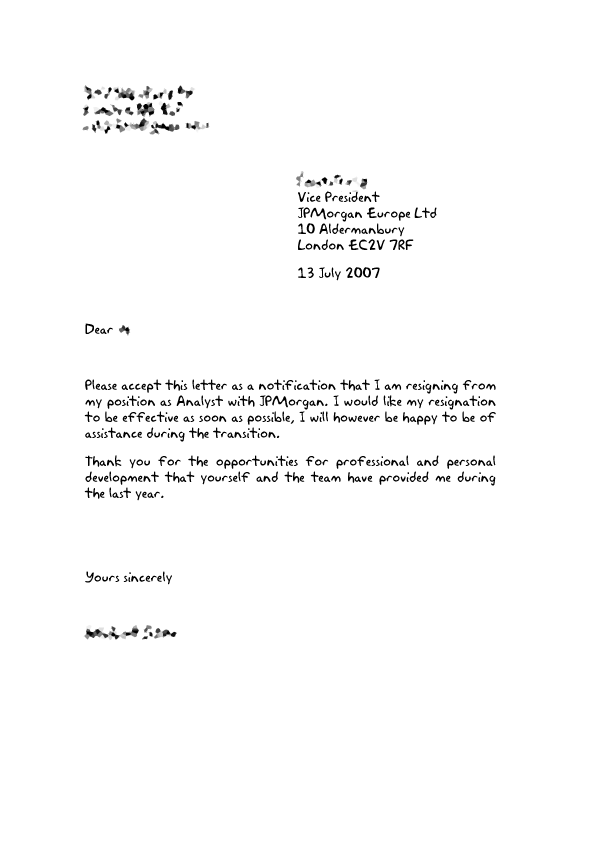
Funny resignation letter

resignation-letter.png

Resignation Letter

Monty\x26#39;s Resignation Letter

4 1 Funny resignation letter

Best resignation letter ever.

Her resignation letter is
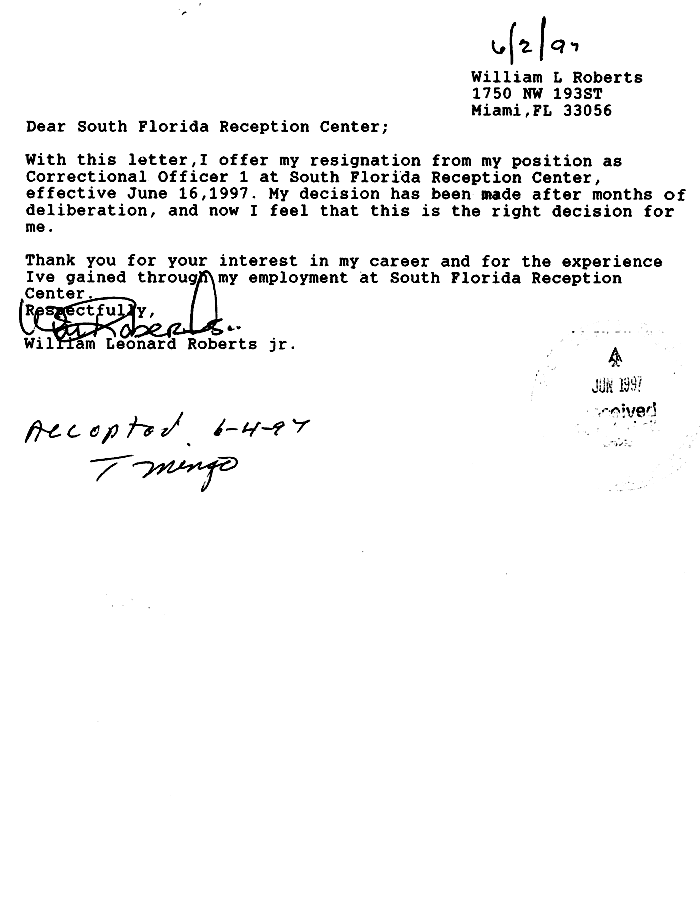
Best Resignation Letter Ever
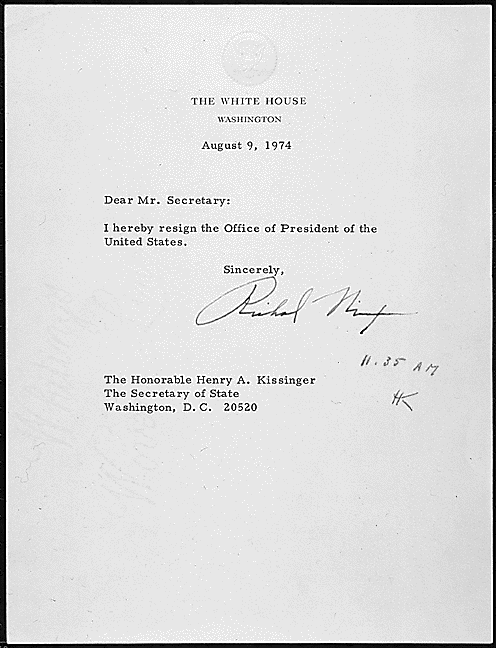
1997 resignation letter,

lt;lt;funny resignation
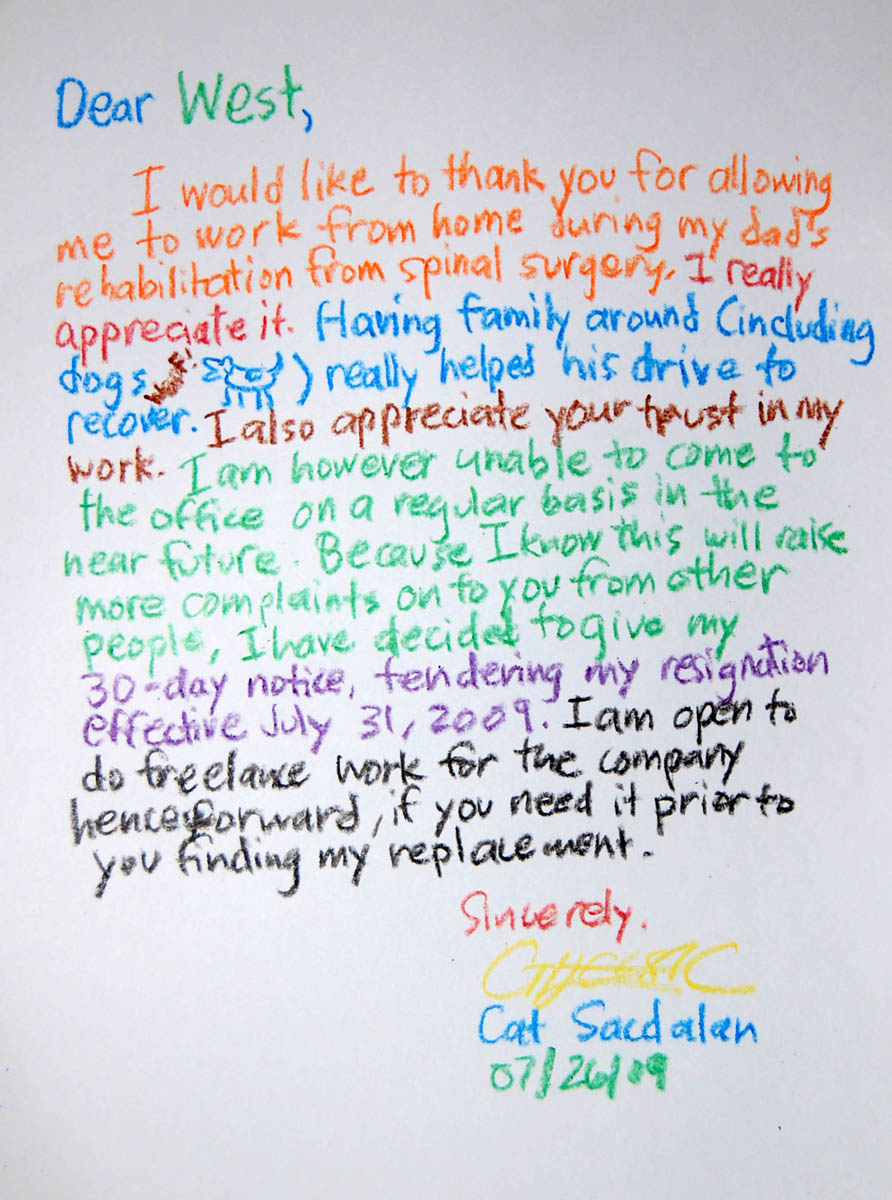
Funny and Creative Resignation
Brown's time as Chancellor was marked by major reform of Britain's monetary and fiscal policy architecture, transferring interest rate setting powers to the Bank of England, by a wide extension of the powers of the Treasury to cover much domestic policy and by transferring responsibility for banking supervision to the Financial Services Authority. Controversial moves included the abolition of advance corporation tax (ACT) relief in his first budget, and the removal in his final budget of the 10% "starting rate" of personal income tax which he had introduced in 1999.
Brown was educated first at Kirkcaldy West Primary School where he was selected for an experimental fast stream education programme, which took him two years early to Kirkcaldy High School for an academic hothouse education taught in separate classes. At age 16 he wrote that he loathed and resented this "ludicrous" experiment on young lives.
Gordon Brown was elected to Parliament on his second attempt as a Labour MP for Dunfermline East in 1983 general election. His first Westminster office mate was a newly elected MP from the Sedgefield constituency by the name of Tony Blair. Brown became an opposition spokesman on Trade and Industry in 1985. In 1986, he published a biography of the Independent Labour Party politician James Maxton, the subject of his PhD thesis. Brown was Shadow Chief Secretary to the Treasury from 1987 to 1989 and then Shadow Secretary of State for Trade and Industry, before becoming Shadow Chancellor in 1992. Having led the Labour Movement Yes campaign, refusing to join the cross-party Yes for Scotland campaign, during the 1979 Scottish devolution referendum, while other senior Labour politicians — including Robin Cook, Tam Dalyell and Brian Wilson – campaigned for a No vote, Brown was subsequently a key participant in the Scottish Constitutional Convention, signing the Claim of Right for Scotland in 1989.
A Funny Resignation Letter

Bloger funny resignation

Yahoo Resignation Letter

Resignation Letter

Most honest resignation letter

Funny resignation letter

resignation-letter.png

Resignation Letter

Monty\x26#39;s Resignation Letter

4 1 Funny resignation letter

Best resignation letter ever.

Her resignation letter is

Best Resignation Letter Ever

1997 resignation letter,

lt;lt;funny resignation
Funny and Creative Resignation
No comments:
Post a Comment